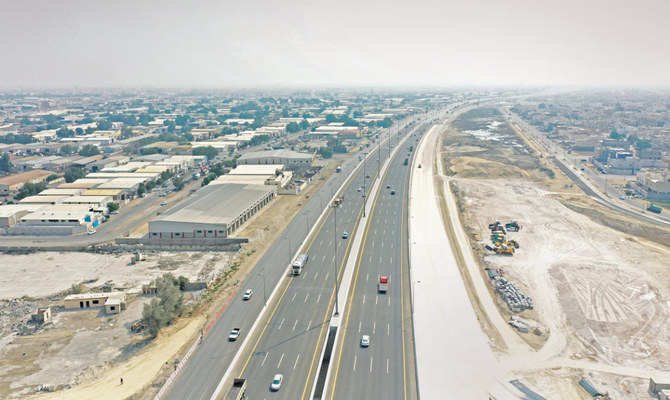
30 Jun 2024
RIYADH: Saudi Arabia’s logistics sector has undergone a remarkable transformation in recent years, fueled by visionary initiatives like Vision 2030 and the National Industrial Strategy. As the sector continues to evolve, what groundbreaking strategies will drive it forward?
The Kingdom presents substantial opportunities for global logistics players. With a population of approximately 36 million and a gross domestic product of $1.81 trillion in purchasing power parity as of the end of 2023, Saudi Arabia is a central hub for expansive trade routes supported by world-class infrastructure.
Another major catalyst for growth is Saudi Arabia securing the bids for Expo 2030 and the 2034 FIFA World Cup — both of which will attract substantial global business opportunities, opening new channels for trade and commerce.
Industry analysts are confident that the Kingdom is only going to attract more global players into the sector, with Hakan Lanfredi, member of the executive board at Dussmann Group telling Arab News: “For international logistics firms, these developments present lucrative opportunities to establish or expand operations, leveraging major global events and the rising need for advanced supply chain solutions.”
Dominik Baumeister, PwC Middle East head and global partner of transport and logistics echoed that sentiment, and told Arab News the existence of untapped opportunities within Saudi Arabia’s logistics industry that could be attractive to global companies.
“There are several whitespaces in Saudi Arabia’s logistics landscape that offer interesting opportunities for global players. In particular, the logistics services space is still in its early stages of development, and more specifically in Freight Forwarding, 3PL, and warehousing,” Baumeister said.
He added: “Airport and port privatization is an ongoing effort, and roads, while perhaps on the periphery of logistics, are opening up as a public private partnership environment.”
Lanfredi also flagged the surge in e-commerce and last-mile delivery services, fueled by increasing digital consumer engagement.
“This shift necessitates robust, agile logistics solutions to meet growing consumer expectations and delivery efficiencies,” he said.